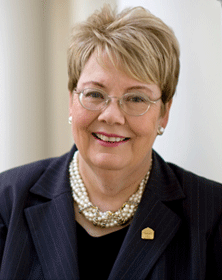By Peter Galuszka
Just two years after the University of Virginia weathered a crisis and the short-lived resignation of its president for supposedly not embracing online education fast enough, Mr. Jefferson’s school is taking a cautious approach about Web-based courses.
This is a good thing, despite the excitement over having thousands of distant students sign up for MOOCs, or large scale college online courses, and expect to instantly log on to all the good things universities offer with supposedly few of the negatives.
Although U.Va. does participate in offering online courses through Coursera, they are not for college credit and Virginia is not following the example of Georgia Tech which is offering an entire degree program via the net.
The Daily Progress reports that U.Va. administrators and professors are worried that it is too easy for unseen students to cheat on the courses – an important consideration due to U.Va.’s strict honor code. Other problems are the high dropout rate of MOOCs and the fact that they may be best suited for introductory courses because professorial classroom involvement is important for more advanced ones.
These views raise questions after all the hype about MOOCs, including many posts on the blog. A special irony is that just two year’s ago, U.Va.’s highly capable and popular President Theresa Sullivan was forced to resign in Board of Visitors putsch led by chairman Helen Dragas supposedly because of her lack of enthusiasm in embracing new technologies.
One well-known blogger wrote a gushy lead paragraph on a posting stating that “Helen Drags gets it.” Err, maybe not, because Sullivan was reinstated after a huge outcry within the U.Va. community and after major, negative world media coverage.
Elsewhere, MOOCs do seem to be gaining some traction. One at the University of North Carolina at Chapel Hill noted that a Tar Heel course got 30,000 sign ups on-line.
But a University of Pennsylvania study showed that of 16 open online courses the school offered, fewer than half of all registrants even watched the first lecture.
So, it seems that MOOCs are going through a period of adjustment. And, they are politically charged since many conservatives, still angry over social changes in the 1960s and 1970s, see MOOCs as a way to overcome what they view as the overweening political bias of cossetted universities.
As the Daily Tarheel at UNC reports: “Rob Schofield,, director of research and policy development for the left-leaning think tank N.C. Policy Watch, said though MOOCs have many positive aspects, there are drawbacks.
“This problem is especially worrisome in the current political environment in which far-right politicians are doing everything they can to de-fund public schools and universities and turn them into on-the-cheap education factories,” he said.
Luckily for the Old Dominion, the University of Virginia is evaluating MOOCs with its eyes open.



